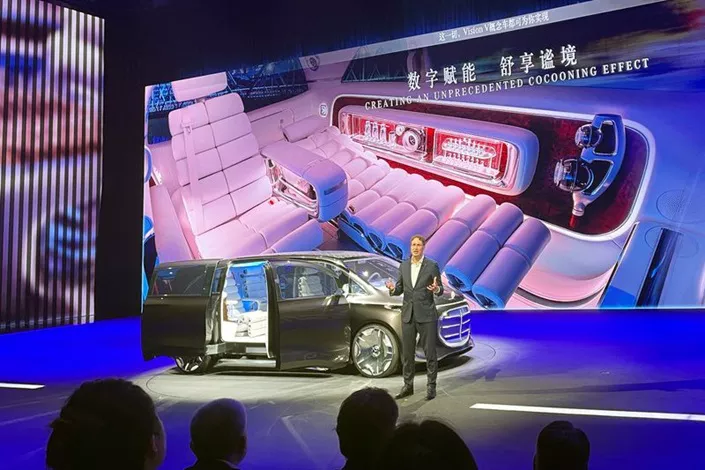Mercedes-Benz CEO Ola Källenius has called on the European Union to reach a fair agreement with China over tariffs on electric vehicles (EVs), cautioning that simple tariff barriers are a blunt tool that could harm innovation and open markets.
Speaking to reporters during the Shanghai Auto Show on Wednesday, Källenius said, “We need to seek win-wins. A conversation about a level playing field in an open market is always legitimate. But a pure tariff barrier is the crudest instrument you can apply.”
He emphasized that Mercedes supports a competitive market but wants negotiations to lead to a more balanced approach. “We have wished for the EU and negotiators on the Chinese side to come up with an equitable solution,” he said. “History tells us that economies exposed to the full force of competition are the most innovative. That is what we would like.”
His comments come as the EU and China continue discussions to ease trade tensions sparked by high tariffs on Chinese-made EVs. In October, the EU raised duties on such imports to as much as 45.3%, targeting companies like BYD (17.0%), Geely (18.8%), and SAIC (35.3%), in addition to the EU’s standard 10% car import duty.
To reduce tensions, both sides are exploring alternatives, including so-called “price undertakings”—a mechanism to ensure imported vehicles are sold at minimum prices rather than face tariffs.
The issue has widened beyond cars. Beijing has taken retaliatory action against other European exports, including French cognac, as trade friction continues to grow. These developments come amid a broader backdrop of global trade disputes, with former U.S. President Donald Trump launching trade wars that involved both the EU and China.
Amid the ongoing talks, Mercedes has deepened its commitment to China. On Tuesday, ahead of the Shanghai Auto Show, the company unveiled its new “Vision V” series—an all-electric luxury limousine van. Some of these vehicles will be produced in China, reflecting the company’s growing focus on the Chinese market.
Källenius’s remarks highlight the auto industry’s concern over rising protectionism and the need for a more collaborative trade environment between Europe and China.
Related Topics:


